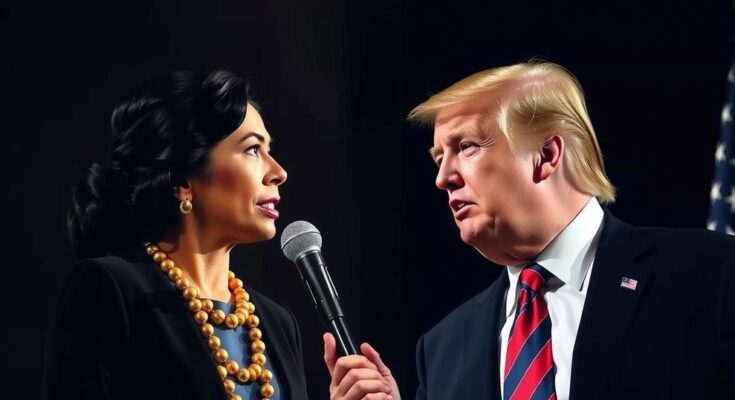Tulsi Gabbard’s nomination for Director of National Intelligence faces scrutiny due to her lack of experience and controversial past. As she could oversee the CIA and NSA, concerns about her capability to maintain national security and foreign relations arise. Michael Leiter discusses the implications of Gabbard’s potential confirmation amidst Trump’s loyalty-driven appointments.
The nomination of Tulsi Gabbard as Director of National Intelligence sparks heated debate. Should she receive confirmation, Gabbard would oversee an expansive network of 18 intelligence agencies, including the CIA and NSA. Critics question her qualifications, highlighting her lack of experience in intelligence and allegations of her aligning with dictatorial stances and disseminating disinformation. Michael Leiter, former director of the U.S. National Counterterrorism Center, shares insights on Trump’s strategic choice and the ensuing implications for national security, particularly regarding intelligence integrity and accountability. Having risen through political ranks, Gabbard’s controversial past intensifies scrutiny over her ability to objectively assess intelligence. Supporters point to her commitment to change within the intelligence community, yet skepticism lingers about her capacity to objectively filter information while resisting foreign manipulation. The post-9/11 era saw the creation of the Director of National Intelligence role aimed at facilitating inter-agency coordination, ensuring the president receives comprehensive insights reflecting diverse viewpoints. Leiter emphasizes the significance of upholding these principles, stating that “the director of national intelligence is supposed to take this enterprise, coordinate budgets, coordinate efforts, and make sure the president has the best intelligence possible.” Yet Gabbard’s controversial meetings with figures such as Bashar al-Assad raise red flags about her judgment and independence. Former National Security Advisor John Bolton has voiced concern over her potential confirmation, suggesting her relationship with international actors might undermine national security integrity. As Trump develops his administration’s intelligence structure, questions loom over his approach and the potential erosion of trust among allies in sharing sensitive information. Michael Leiter reflects on the pressing need for the Director of National Intelligence to maintain secure intelligence-sharing with allies. He warns, “We rely on our allies… and there’s legitimate concern that a Trump administration will have challenges with that.” Hence, Gabbard’s journey toward confirmation may reveal not only the future of U.S. intelligence but also the scales of our national relationships in safeguarding peace and security under scrutiny.
The article examines the contentious nomination of Tulsi Gabbard by Donald Trump to become the next Director of National Intelligence (DNI). The role of the DNI includes overseeing a broad spectrum of intelligence agencies, such as the CIA and NSA, and ensuring cohesive and timely intelligence sharing across them. Gabbard’s track record, combined with doubts about her intelligence experience and her past associations, leads to significant concerns about her suitability for the role and the potential ramifications for U.S. intelligence operations.
Ultimately, Tulsi Gabbard’s nomination for Director of National Intelligence poses intricate challenges and questions about her readiness to navigate the complex landscape of national security. Critics argue against her experience and past actions, which may impact both domestic and international trust in U.S. intelligence operations. Michael Leiter articulates the fragility of collaboration among allies and cautions that Gabbard’s ability to manage sensitive information must be rigorously established to protect national interests, leaving the U.S. standing at a crucial crossroad of accountability and vigilance.
Original Source: www.pbs.org



